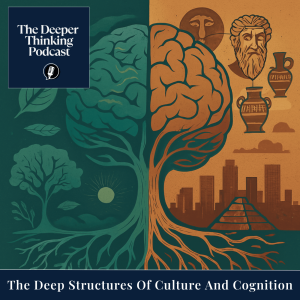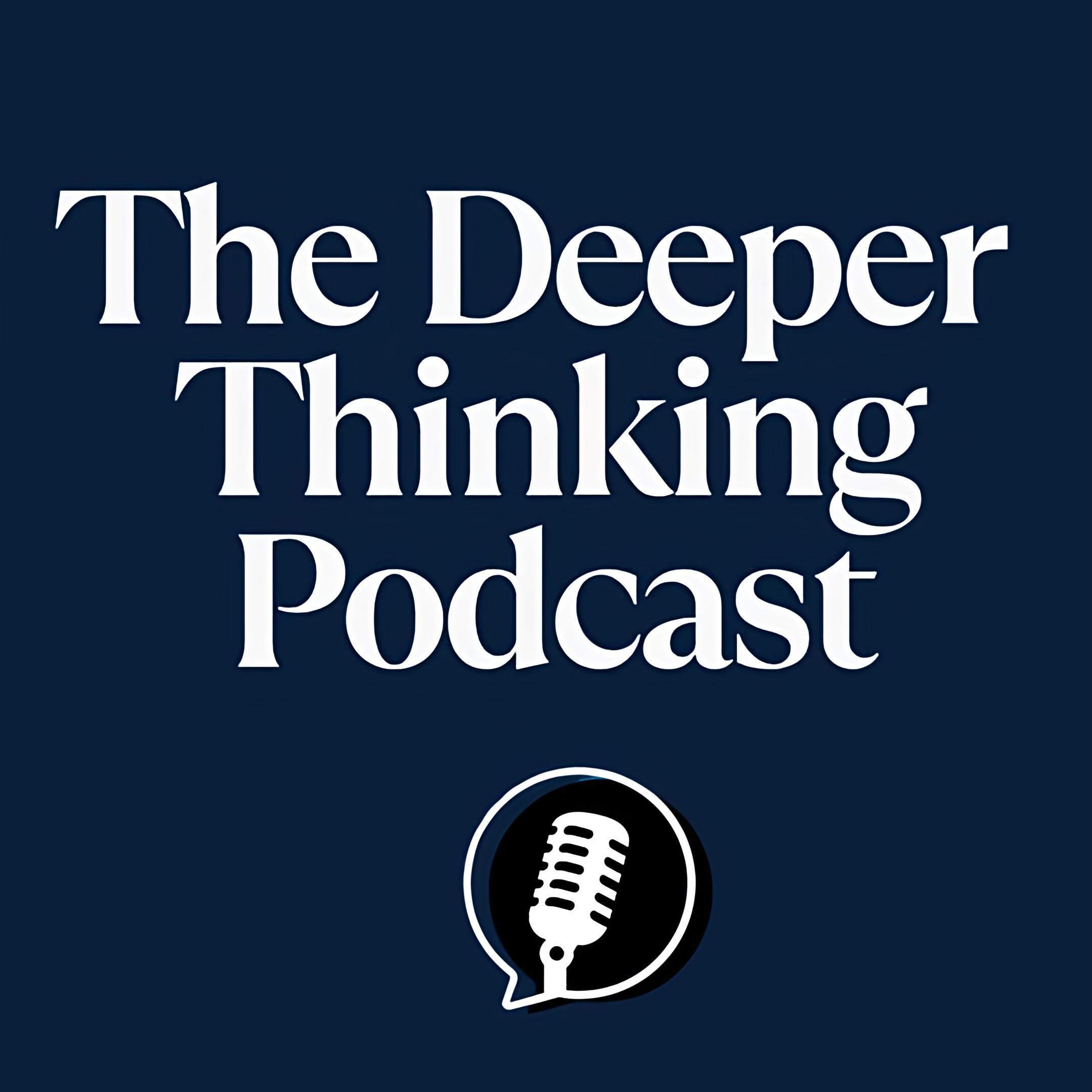Episodes

5 days ago
5 days ago
The Deep Structures of Culture and CognitionThe Deeper Thinking Podcast
In this episode, we dive deep into the structuralist theories of Claude Levi-Strauss, exploring how the human mind organizes culture and cognition through universal structures. These deep cognitive frameworks govern the way we understand myths, kinship systems, and cultural expressions. The journey into understanding these universal structures is not simply intellectual, but a profound rethinking of how we perceive human culture in its entirety.
The structuralist mindset goes beyond merely studying isolated cultural artifacts or behaviors. It challenges us to see cultural phenomena as deeply connected, shaped by unconscious structures within the mind, as proposed by Levi-Strauss. As he suggested, the study of myths and rituals reveals not just stories or behaviors, but the underlying cognitive patterns that guide human experience across cultures.
At the core of this approach is the idea of binary oppositions—the dualities like life/death, nature/culture, raw/cooked, good/evil—that Levi-Strauss argued are universally present in the way humans organize their cultural realities. These oppositions are not arbitrary; they are fundamental to human thought, reflecting cognitive structures that transcend culture.
However, the professional mindset of the anthropologist is not simply about identifying these structures—it’s about understanding their dynamics. As Foucault and Derrida have critiqued, culture is not a static system of binary oppositions but a dynamic field shaped by historical and social forces. While Levi-Strauss revealed the fundamental ways in which universal cognitive patterns organize cultural meaning, contemporary scholars now understand that these structures must be examined within their social and historical contexts, recognizing individual agency and historical contingency.
Why Listen?
-
Understanding how universal cognitive patterns shape culture and cognition
-
Exploring the concept of binary oppositions in myths and kinship systems
-
The intersection of culture, cognition, and historical context
-
The role of agency in shaping the structures that govern human thought
Further Reading
As an affiliate, we may earn from qualifying purchases through these links.
-
The Raw and the Cooked by Claude Levi-Strauss — A foundational work on myth and culture that reveals how binary oppositions govern human thought.
-
Discipline and Punish by Michel Foucault — A study of power and social systems, emphasizing how historical forces shape cultural practices.
-
Of Grammatology by Jacques Derrida — A key text in post-structuralist thought, exploring the limits of language and meaning.


Comments (0)
To leave or reply to comments, please download free Podbean or
No Comments
To leave or reply to comments,
please download free Podbean App.